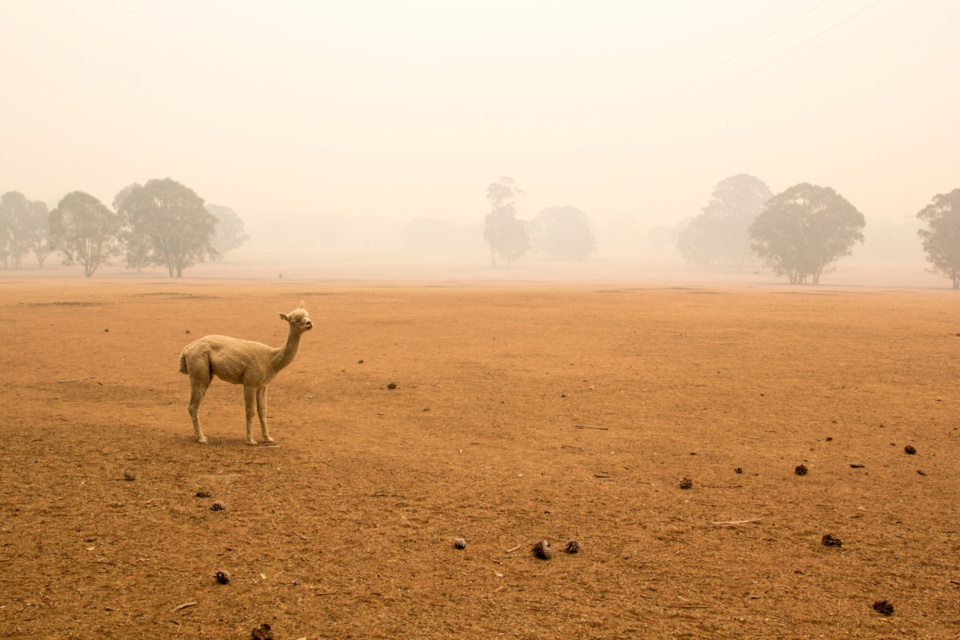
What not-for-profit leaders need to know in 2026
Posted on 12 Feb 2026
Our special NFP trends report distils the views of more than two dozen experts.
Posted on 30 Jan 2025
By Greg Thom, journalist, Institute of Community Directors Australia
A new grants program is empowering local rural communities to reduce harmful greenhouse emissions and tackle the effects of climate change.
The Foundation for Rural Regional Renewal (FRRR) has distributed more than $685,000 in grants for 27 initiatives under its Community Led Climate Solutions (CLCS) program.
FRRR said each of the projects are designed to enable positive and sustainable environmental, social and economic outcomes.
The program allows not-for-profit organisations (NFPs) to prioritise local needs and address factors affecting their community’s ability to adopt new ideas, adapt to a changing climate and take actions to mitigate the risks of climate change.
The grants have been split into two streams:
Sarah Matthee, Climate Solutions Portfolio Lead at FRRR said NFPs in remote, rural and regional Australia can find it difficult to access funds for local initiatives that tackle climate change.
“The four projects funded via the scaling stream advance an existing, locally led project to a more mature state, enhancing the capacity of the local community to take an active role in the mitigation or adaptation of climate change.”
They include expansion of a pilot program in the Northern Territory community of Tennant Creek designed to harness traditional ecological knowledge, cultural practices, and climate resilience insights from First Nations communities to create sustainable and culturally appropriate housing solutions.
At the other end of the nation in the Victorian town of Yackandandah, $57,500 has been allocated to expand a project aimed at equipping local aged care facilities with solar and battery power.
“We look forward to seeing the positive impact these initiatives have within their communities as they progress.”
“Local NFPs and community organisations want to play a bigger role in creating sustainable and enduring climate solutions for their communities.”
Matthee said the CLCS program reflected the importance of empowering local people to lead local climate solutions.
“Local NFPs and community organisations want to play a bigger role in creating sustainable and enduring climate solutions for their communities,” she said.
“This program responds to that need, which is why it continues to attract more and more applications.”
Matthee said the 27 projects funded highlighted a diverse range of future-focussed, community-led climate solutions, from addressing energy supply, reuse, and recycling, distributing knowledge and climate risk adaptation.
“This diversity reinforces the fact that each community’s experience of the social, economic and environmental impacts of a changing climate is unique.
“So too are the ways that communities want to respond to those circumstances.”

Goonumbla, NSW
Initiative: Installation of a solar battery monitor to reduce power generation and carbon emissions
Grant: $3,000
Milton, NSW
Initiative: establishment of a worm-farm to convert local food waste into soil conditioner, reducing landfill and supporting a small-scale, local food system.
Grant: $20,000
Emerald, Queensland
Initiative: installing a plastic recycling machine at the Central Highland's Science Centre, helping educate regional children on climate change solutions.
Grant: $20,000
Sandy Point, Victoria
Initiative: Sustain the operation of a community eBus service and facility by supporting the Sandy Point Community Men’s Shed’s transition to a renewable energy future through the installation of solar panels and battery storage system.
Grant: $19,050
Matthee said more than half the projects funded were designed to develop awareness, knowledge and skills, a reflection that community groups were at different points in their journey in pushing back against the effects of climate change.
“Ultimately, we hope that the rural communities and organisations that are stepping up to roll out these initiatives will inspire and encourage other communities to take relevant action, engaging both business and philanthropy in local responses."
FRRR said the grants have been made possible due to donations from organisations including Boundless Earth, Hand Heart Pocket and the Paul Ramsay Foundation.

Posted on 12 Feb 2026
Our special NFP trends report distils the views of more than two dozen experts.

Posted on 11 Feb 2026
Australia’s not-for-profits need strategic investment by the federal government to support the…

Posted on 04 Feb 2026
In this time of escalating climate impact, the head of Australian Ethical Foundation, Kate…

Posted on 27 Jan 2026
With a laser focus and the right tools, this volunteer-led NFP is unlocking life-changing…

Posted on 14 Jan 2026
As the holiday chatter fades and the new year begins, it’s the ideal time for organisations to plan…

Posted on 13 Jan 2026
This page provides information about financial assistance available to not-for-profit organisations…

Posted on 10 Dec 2025
The Australia Institute has called on the federal government to force Australian businesses to be…

Posted on 11 Nov 2025
Australian charities are curious about how to use artificial intelligence and are increasingly…

Posted on 11 Nov 2025
Thousands of not-for-profit organisations are being held back by an outdated, rigid and complicated…

Posted on 11 Nov 2025
New grants worth $36 million aim to help farmers and farming communities prepare for drought by…

Posted on 05 Nov 2025
The number of registered charities in Australia ballooned in the last financial year by 4621 new…

Posted on 01 Oct 2025
Persistence, planning and strategic focus continue to be the keys to grant success, according to…